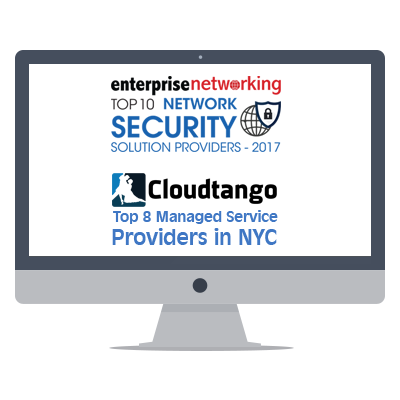In the news today you see constant updates about global issues like ISIS, Trump vs. Hillary, Zika and the South China Sea conflict.
One issue you probably won’t see any updates about, however, is ransomware—the malware epidemic that is silently spreading like wildfire across the Web, leaving a trail of confused and battered end users behind.
Surprisingly, the American public is still in the dark about this devastating type of malware, which restricts access to a computer system until a ransom is paid. In a recent study of American consumers, 43 percent of respondents said they don’t know what ransomware is. Forty-four percent admitted that they don’t know what type of data could be stolen in a ransomware attack.
The report also shows that ransomware knowledge is equally poor among tech-savvy millennials. Forty-two percent of millennials are not sure what ransomware is, and 13 percent aren’t even worried about it.
Let’s bring you up to speed on this critical cybersecurity issue. Here is the rundown on ransomware:
How does a machine get infected with ransomware?
There is no single way to infect a computer with ransomware. Hackers deploy ransomware using a variety of methods. They may choose to exploit a security vulnerability within your computer’s operating system or application. They may send a spam email with a malicious attachment. Or, they may embed ransomware into an online advertisement or website.
Are there different types of ransomware?
There are two basic types of ransomware: crypto ransomware, and locker ransomware.
Crypto ransomware encrypts (locks) access to specific files on a device until a payment is made. Locker ransomware locks the screen, restricting access to all other programs and applications.
Within these two categories, there are countless strands of ransomware. Some of the most popular include Cryptolocker, CryptoWall and Locky.
What happens after you get infected?
It largely depends on the type of ransomware that is in your system. Sometimes it’s easy to identify ransomware, and sometimes it’s not. Perhaps the most important thing to realize is that crypto ransomware can spread quickly within your computer once it’s inside. Jigsaw, for instance, is one type of ransomware that deletes files at various intervals to encourage speedy payments. Jigsaw may delete files on the hour. It also deletes 1,000 additional files every time the computer is restarted.
Should you pay to regain access?
Unfortunately, only you can determine whether you need to pay to try and regain access to your information or device. You may, for instance, be holding priceless information that you may never see again if you don’t comply.
Keep in mind, though, that hackers could very well run away with your money and delete the files. In fact, in many cases hackers have deleted files immediately and tricked end users into making payments anyway.
What’s more, if you make a ransomware payment you could very well be supporting organized criminals or even terrorist groups.
Can you negotiate with the hackers?
No. Once your computer is infected, you are left with two options: Pay the ransom, or don’t pay the ransom. Ransomware can be removed from a system with the help of a professional computer expert or managed services provider like Apex Technology Services—but removal of the malware won’t get your information back.
Will the problem stop any time soon?
Ransomware is not going away. In fact, the problem is going to get much, much worse before it gets better.
Consider this: In 1Q16, Symantec Security Response claimed that their group spotted over 4,000 ransomware attacks per day. This was a 300 percent increase of the 1,000 attacks per day that were registered in 2015. Unfortunately, 2Q16 wasn’t any better, as ransomware continued to spread heavily throughout the spring. As we discussed here on the Apex blog, ransomware attacks hit a record high in April. We’re still waiting to see ransomware statistics from 3Q16, but we can’t see the problem improving. We’ll be sure to let you know when we do.
Which industries are most at risk?
High-risk industries like healthcare, finance, government and insurance need to be on red alert for ransomware. These industries are being heavily targeted, as these types of organizations tend to harbor the most valuable information.
It’s important to realize, though, that ransomware is a high threat for every organization, regardless of its type or size. Small to medium-sized businesses, we’re talking directly to you. Don’t think that ransomware is for large enterprises only. SMBs are easy targets because they typically lack the resources to protect themselves against a sophisticated attack.
What can I do to prevent an attack?
You can’t always prevent a ransomware attack. You can block suspicious email addresses, for instance, but once hackers discover the correct domain they will continuously flood your end users with malicious attachments from different accounts.
You can, however, take active measures to educate your employees and fortify your network. Here at Apex Technology Services, we can’t stress enough how important it is to keep employees in the know about the latest cybersecurity threats. Ransomware will continue to spread as long as the American public remains clueless about the problem.
What’s more, you can back up your business’s data so that if a ransomware attack does happen, you can confidently ignore the ransom demand without suffering any consequences. Your data will live offsite in a hosted, protected server.
Keep in mind, though, that data backups are much more difficult than they sound. Businesses often run into issues related to storage capacity, theft and high costs. For this reason, we strongly encourage you to work with a managed services provider who will back up your data in a way that is cost- and time-effective, as well as secure. With the help of an MSP like Apex Technology Services, you can rest assured knowing that your data is well-protected at all times.
A new breed of hacktrepeneurs has awoken and they have little to fear and everything to gain by infecting as many companies as possible and extorting money from them. Apex Technology Services stands ready to protect your company regardless of whether it’s located in New York City; White Plains, New York; Connecticut; Australia; Europe; or anywhere else. Our full suite of cybersecurity and IT support services is at your disposal, enabling you to spend less time worrying about and more time growing your business.
In addition, our new Cybersecurity Compliance Certification for law firms will help keep your legal practice from becoming the next Panama Papers victim. This baseline cybersecurity audit for the legal industry should be considered seriously by all law firms.



